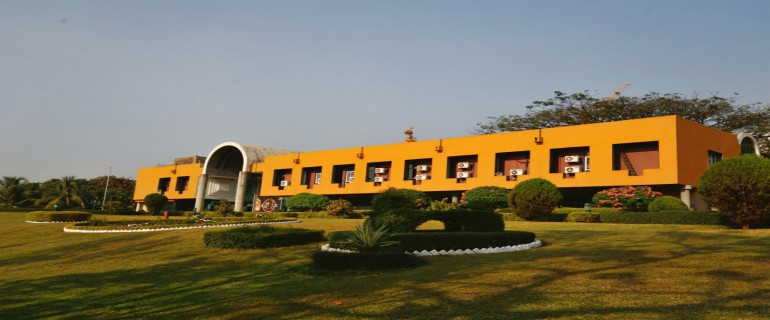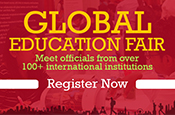Indira Gandhi Institute of Development Research (IGIDR) is an advanced research institute established and fully funded by the Reserve Bank of India for carrying out research on development issues from a multi-disciplinary point of view. IGIDR was registered as an autonomous society on November 14, 1986 and as a public trust in January 1987. On December 28, 1987 the campus was inaugurated by Late. Shri Rajiv Gandhi, the then Prime Minister of India.
Subsequently, the Institute was recognized as a Deemed University under Section 3 of the UGC Act. Since then it has been awarded the highest National Assessment and Accreditation Council (NAAC) rating of A++ (under the old methodology) given to Indian academic institutions. Starting as a purely research institution, it rapidly developed into a full-fledged teaching cum research organisation when it launched a Ph.D. program in the field of development studies in 1990. The objective of the Ph.D. programme is to produce researchers with diverse disciplinary backgrounds who can address issues of economics, energy and environment policies. In 1995, the institute initiated the M. Phil programme. The M.Sc. programme commenced in 2003 to introduce students to the world of research at an earlier stage.
Starting as a purely research institution, it rapidly developed into a full-fledged teaching cum research organisation when it launched a Ph.D. program in the field of development studies in 1990. The objective of the Ph.D. programme is to produce researchers with diverse disciplinary backgrounds who can address issues of economics, energy and environment policies. In 1995, the institute initiated the M. Phil programme. The M.Sc. programme commenced in 2003 to introduce students to the world of research at an earlier stage.
At present the Institute has about 150 employees and students that include about 26 full time faculty members, 24 non-academic staff and about 90 M.Sc./M.Phil/Ph.D students. The research agenda of the Institute is guided by policy concerns, by individual faculty members’ research interests and projects by sponsors. However, there is a need to strengthen and diversify the research in keeping with the changing needs. While individual scholars would continue to have the freedom to choose topics for research, there is a need to expand the frontiers of knowledge in order to keep with the emerging challenges
For a deemed university, teaching is an important component of the Institute’s activities. Teaching programme has been very good at IGIDR. The students of MSc, M.Phil and Ph.D have got jobs in reputed corporate firms, banks and research institutes and universities. It reflects the quality of teaching at IGIDR. Teaching programmes can be upgraded to international standards through appropriate curricula revisions and academic collaborations involving faculty and student exchange programmes. There is also a need to focus on infrastructure development including hostel facilities for students.
The vision of IGIDR in the next decade is to further develop it as an Institute of high international standing and join the league of world class centres of excellence in theoretically informed applied research and teaching in development studies. It can be done by strengthening the present areas of research and diversifying its research and teaching to new areas to address the development challenges in tune with the changes in development paradigms, economy and society. The intellectual ambience of openness to ideas and plurality of perspectives have to be continued and strengthened.
The aims and objectives of the Institute are to promote and conduct research on developmental issues from a broad inter- disciplinary perspective (economic, technological, social, political and ecological). It aspires to gain insights into the process of development and alternative policy options and to further disseminate the knowledge acquired.


